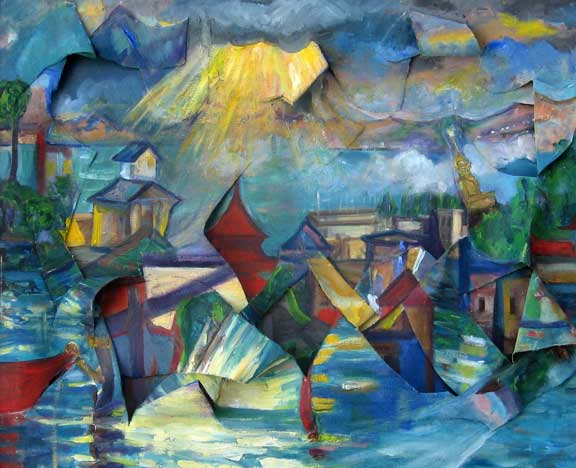Words, Words, Words—Such a Fortune Wasted

Or so the Chinese sage Laozi observed in the Dao De Jing, written 2,500 years ago. Needless to say, this has never kept a writer from writing. Including Laozi himself.
He went on to say, "This is what words act like: the universe." Sure, trying to capture the universe in words is an endlessly frustrating vocation, although some might say that the enterprise also offers poets everlasting job security. My latest poem in the NAR, “Psalm,” is only one of many attempts to point to what remains hidden behind the words.
Laozi, in fact, inspires me daily in my writing. No one else juggles words so brilliantly, flashing them past our eyes until they become a blur, allowing us a peek at the reality that words normally mask.
Having studied the Chinese language, traveled through China, and loved the Dao De Jing for many years, I recently translated this amazing text myself, to get as close to the original words as possible. (Dao De Jing: Laozi’s Timeless Wisdom) And, yes, this is the same as the Tao Te Ching, only with a more modern transliteration of the Chinese.
Now, I’m not really a morning person, but every day for a year I jumped out of bed, eager to begin translating a new chapter. (There are 81 of them.) It was the most exciting writing project I’ve ever undertaken. I learned that there’s a lot of gender bias in many existing translations. This is partly due to the fact that the third-person singular pronoun in Chinese can mean he, she, or it. Early translations into English used he by default, and later writers often based their versions on these first translations.
It was also astonishing to see how Laozi’s observations still apply today—to human nature, to war, to language, to the environment.
Those who are aware
are not talking about it.
Putting things into words
is not awareness.
True, true, true. But even Laozi had to use words.
Recommended
Nor’easter
Post-Op Appointment With My Father
Cedar Valley Youth Poet Laureate | Fall 2024 Workshop







